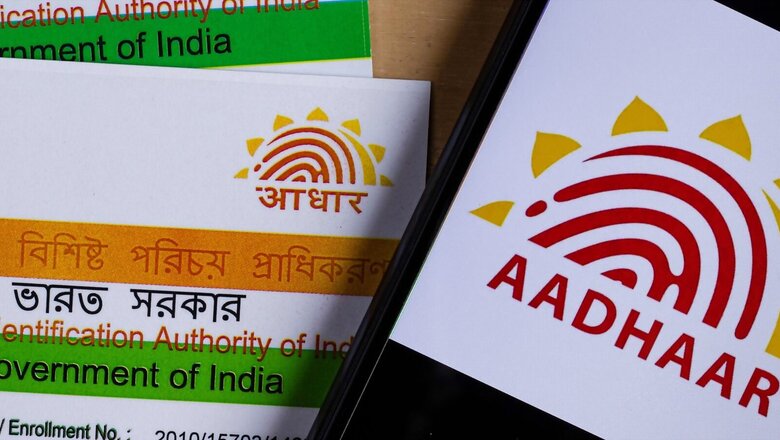
views
Recently the Unique Identification Authority of India (UIDAI) issued a set of guidelines to Offline Verification Seeking Entities (OVSEs) highlighting several usage hygiene issues, better safety mechanisms at users level, and ways to further enhance residents’ trust while using Aadhaar voluntarily for lawful purposes.
Offline verification is the use of Aadhaar for carrying out identity verification and KYC processes locally, without connecting to the Central Identities Data Repository of UIDAI. The organisations conducting offline verification of an Aadhaar number holder for a lawful purpose are called OVSEs.
Entities must maintain the log/record of the explicit consent received from residents for any future audit by UIDAI or any other legal agency thereof.
UIDAI has also asked OVSEs to verify Aadhaar via the QR Code present on all four forms of Aadhaar (Aadhaar letter, e-Aadhaar, m-Aadhaar and Aadhaar PVC card) instead of accepting Aadhaar in physical or electronic form, as a proof of identity.
In case they notice any misuse of information, verification entities need to inform UIDAI and the resident concerned within 72 hours.
UIDAI has cautioned OVSEs not to perform offline verification on behalf of any other entity or person and ensure full cooperation to the Authority or law enforcement agencies in case of any investigation involving misuse of Aadhaar.
Aadhaar Card safety tips;
1. Do Not Share Aadhaar OTP: The UIDAI has recommended citizens to keep an Aadhaar OTP to themselves and not to share with anyone to prevent Aadhaar fraud.
2. Verify Aadhaar: Last year, UIDAI in a series of tweets said all 12-digit numbers are not Aadhaar numbers, and asked the person to verify an Aadhaar number through its portal before accepting it as identity proof.
3. Avoid Public Computers For Downloading Aadhaar: The UIDAI has also asked users not to download e-Aadhaar on public computers, and even if they do they have been advised to delete all the copies.
4. Use Official Portal: The UIDAI has recommended users to download Aadhaar only from its official website.
5. Check Aadhaar Authentication History: You can check the Aadhaar Authentication History of up to 50 authentications in the past 6 months. The exact date and time of Authentication are mentioned in the results, which can help you notice if there’s an unintended authentication entry.
6. Lock Your Aadhaar: The UIDAI has asked Aadhaar users to lock their Aadhaar biometrics using the mAadhaar app or to use the official website to avoid any possible misuse.
7. Use Masked Aadhaar: The UIDAI has encouraged the usage of masked Aadhaar, which is valid and accepted widely. A masked Aadhaar displays only the last four digits of the Aadhaar number.
Can a fraudster withdraw money from my Aadhaar-linked bank account if he knows my Aadhaar number?
According to the information available on the official website of UIDAI, just by merely knowing your bank account number, one cannot withdraw money from your account, similarly by merely knowing your Aadhaar number, no one can withdraw money from an Aadhaar linked bank account.
As in bank for withdrawing money, your signature, debit card, PIN, OTP, etc., is required, similarly for withdrawing money from your Aadhaar-linked bank account through Aadhaar, your fingerprint, IRIS or OTP sent to your Aadhaar registered mobile will be required.
UIDAI says that no Aadhaar holder has suffered any financial or other loss or identity theft on account of any said misuse or attempted impersonation of Aadhaar.
Read all the Latest Business News here


















Comments
0 comment